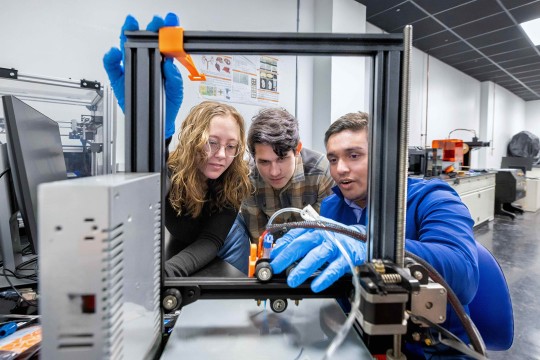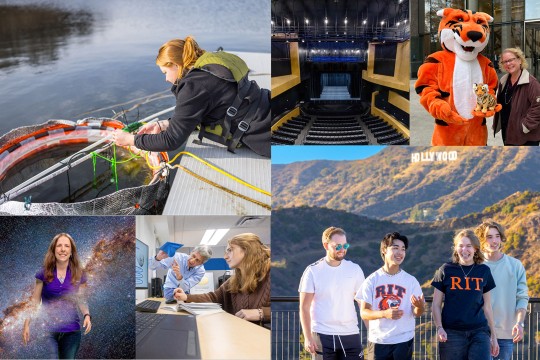RIT leading STEM co-mentoring network
Two RIT professors receive National Science Foundation grant to support nation-wide project
Betsy Dell, professor in the College of Engineering Technology, and Makini Beck, assistant professor in the College of Liberal Arts and the School of Individualized Study, have teamed up with Washington State University, Gonzaga University, and the University of Montana to use nearly $600,000 awarded by the NSF to create a network model to connect women STEM students.
Two Rochester Institute of Technology professors are leading a National Science Foundation-funded project to support minoritized women students in STEM through a co-mentoring network called WiSEN (Women in STEM Network).
Betsy Dell, professor in the College of Engineering Technology, and Makini Beck, assistant professor in the College of Liberal Arts and the School of Individualized Study, have teamed up with Washington State University, Gonzaga University, and the University of Montana to use nearly $600,000 awarded by the NSF to create a network model to connect women STEM students. Sarah Bark was recently hired to be the project manager. She will support the daily operations and ensure program initiatives and goals are met.
Dell remembers feelings of isolation and imposter syndrome while being the only woman or one of only a few women in her engineering classes when she was a student. This network will help change that for current and future students.
“By developing this community where students can speak to other people who may be feeling the same way, they can build each other up,” said Dell. “They can develop skills through participation in these conversations, and it can help them feel like they do have a community here at RIT and beyond RIT.”
Beck has found support through other women’s networks and has noticed the need for mentoring groups. She hopes those involved in WiSEN have similar results as she’s had while attending networking conferences and events.
“You come away feeling like you’re not alone,” said Beck, “and that there are other women who look like me who are having the same challenges as me, not just at my institution but across the board. You leave feeling energized.”
The WiSEN program will collaborate with Million Women Mentors and Sarah Brownell from RIT’s Grand Challenges Scholars Program to give students greater access to a national network of students, faculty, and corporate partners to help increase STEM networks beyond RIT. Having minoritized women involved from across all areas of STEM and from different areas of the country will make the program diverse. It will also make it likely for participants to connect with someone in their specific field.
“It’s a co-mentoring network, so the idea is that everyone brings skills to the table and they can share their own experiences,” said Beck.
Those involved in the co-mentoring network at RIT will meet regularly and then meet with the other institutions once a month to form a national network. In the future, the team would like to see the network continue to grow and empower women to remain in STEM fields.
“It’s a common theme for women to feel isolated,” added Dell. “Getting involved in this project will develop skills where students would feel more comfortable in the classroom and see opportunities for leadership and what that can bring to them.”
Students interested in the co-mentoring network can email Makini Beck for more information.






